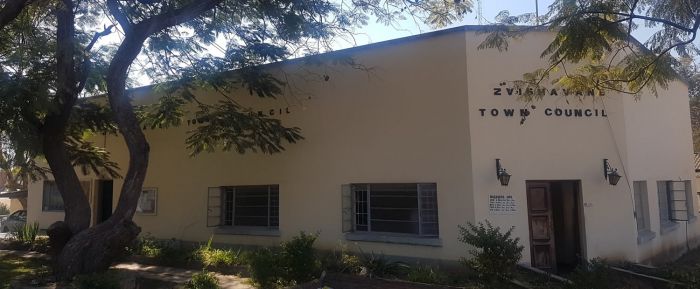By Nyasha Dube, Zvishavane
Local authorities and residents in Zvishavane are bearing the brunt of the COVID-19 pandemic as it has greatly compromised service delivery due to inadequate funding, with the bulk of the resources being channelled to efforts to contain the deadly respiratory disease.
The country is currently grappling with the second wave of the pandemic which is characterised by a deadly new variant that is proving difficult to contain.
In response to the rapid rise of Covid infections, government imposed a second strict 30 day lockdown which came into effect on the 5th of January, in efforts to control the spread of the virus.
Zvishavane Town Council chairperson Khulekani Ndlovu said they are facing serious challenges because of the pandemic.
“Most residents are not paying their rates as they are in the informal sector and are not currently working. The little money we get is being channeled to refuse collection and water purification because water is an important need during such a health crisis,” said Ndlovu.
He added that government promised to assist with a reasonable percentage of funds so that they provide better services.
Runde Rural District Council Chief Executive Officer Gordon Moyo also said they are equally affected by the pandemic and lockdown.
“We have complied with government’s directive to reduce our staff to 10%, however this means that our capacity has been reduced by 90% meaning your services are negatively affected,” said Moyo.
“We need resources in order to also deliver services efficiently and as a taxing authority we obviously rely on collecting from sources which have been also constrained by the pandemic. We hope that things normalise soon so we can revive our communities.” added Moyo.
Most local authorities have always been under resourced and the COVID-19 pandemic has worsened the situation, with suburbs like Kandodo, Maglaz, Mandava among others, going for days or weeks without running water. This in turn compromises the fight against the coronavirus as washing of hands is a critical aspect in curbing its spread.
This has resulted in residents defying lockdown restrictions to queue at water points like boreholes, with minimal social distancing.
Meanwhile, residents say failure to pay their bills is due to the fact that most of them are in the informal sector, which currently has been halted as per lockdown restrictions.
Sophia Muchena, a resident said as residents they are at the receiving end as they are directly affected by lack of adequate service provision.
“Yes we are finding it hard to pay our rates and rentals because we survive on buying and selling goods but it is impossible to do so now. The roads are now in a despicable state, we have water shortages and there are delays in garbage collection,” said Muchena.
Another resident, Ishmael Moyo said local authorities must try to provide basics despite the lockdown.
“Our businesses are not classified as essential services and we can’t pay our bills in full, but there must be something that can be done to fix the situation,” Moyo said.
Lobby and Advocacy officer for Zvishavane Residents and Ratepayers Association Viola Vutete said the pandemic is really a burden to residents as their sources of income are limited.
“Their paltry money goes to food stuffs and other basic needs. Also, computer illiteracy plays a role in this situation because some residents are not familiar with online payment methods. Residents are also resisting the inflated hikes of taxes whilst ironically their source of income is frighteningly decreasing,” said Vutete.
She added that poor service delivery is due to the financial crisis and limited workers.
“Local authorities used to employ part time workers (residents) for a period of ten days but now due to financial constraints, that is no longer viable,” said Vutete.
The challenges go beyond the mining town as Gweru Residents and Ratepayers Association spokesperson Cornelius Selipiwe says they are facing the same problems.
“One needs to understand that vending is the main economic activity that we were surviving on, but as of now there’s no disposable income. As residents we have also lost trust in our local authorities as they are not giving us the value of our money, service delivery remains poor,” Selipiwe said.
He added that tariffs are being hiked without public consultation.
“Tariffs are increased without clear explanation, yet the service provided does not tally with the money. Right now, we do not understand why there is water rationing when most dams are full. Increasing tariffs does not mean local authorities will meet their targets, they need buy in from residents,” he said.
Last year during the 2021 budget consultation meetings held in the district, residents and local authorities requested for budgets to be allocated in foreign currency as they said the local currency is being eroded by inflation.
They also called for devolution of COVID-19 funds so that funds meant for service delivery are not channelled torwards combating the virus.

